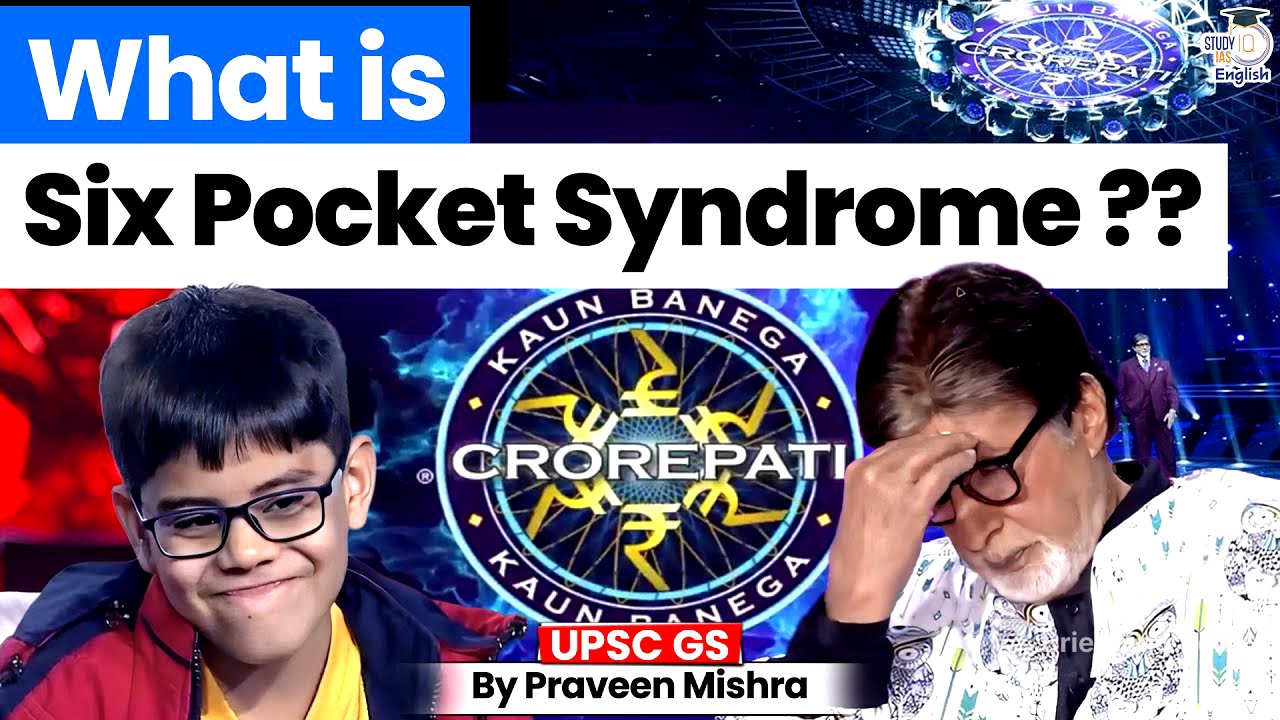TLDR;
The video discusses an incident involving a young contestant on KBC who displayed rude behavior, sparking a debate about modern Indian parenting. It addresses the potential negative consequences of overpampering and overprotecting children, referencing concepts like "six-pocket syndrome" and "helicopter parenting." The video emphasizes the importance of responsible parenting and the role of individuals, especially bureaucrats, in shaping a respectful society. It also includes information about StudyIQ IAS courses for civil service aspirants.
- The incident on KBC highlighted issues with modern parenting and societal respect.
- Overpampering can lead to disrespectful behavior in children.
- "Six-pocket syndrome" and "helicopter parenting" are key concepts discussed.
- Responsible parenting is crucial for societal well-being.
Introduction: A Rude Kid on National TV [0:02]
The video starts by addressing the controversial behavior of a 10-year-old contestant on KBC who made a rude comment, igniting a debate about parenting styles and the behavior of modern children. The speaker acknowledges the child's rudeness and questions whether such behavior should be excused simply because of the child's age. He contrasts this with past generations who were raised with stricter discipline and emphasizes that this incident raises concerns about the child's future behavior and respect for others, potentially leading to societal issues.
The Underlying Social Symptom [0:49]
The speaker notes that Amitabh Bachchan handled the situation with grace and experience. However, the incident reveals a deeper social issue: the rise of overpampered, overconfident, and overprotected children. These children are often products of what is known as "six-pocket syndrome" and "helicopter parenting," terms that are important to understand.
Understanding Six-Pocket Syndrome [3:13]
Six-pocket syndrome, originating from China's one-child policy, refers to a situation where a single child receives excessive financial and emotional support from six adults: parents, paternal grandparents, and maternal grandparents. This overindulgence can lead to children becoming rude and disrespectful. Child psychologists use this term to describe the materialistic upbringing of many urban middle and upper-middle-class Indian children.
Understanding Helicopter Parenting [4:08]
Helicopter parenting, a term coined by Dr. Hennot in 1969 and popularized in the 2000s, describes parents who constantly hover over their children, managing every aspect of their lives, from homework to friendships. While parenting is essential, overparenting prevents children from making their own decisions, hindering their growth and development. This over-management leads to children becoming overly reliant on their parents, which is a significant concern for society.
The Responsibility of Parenting and Bureaucracy [5:10]
The speaker criticizes the parents' laughter in the audience, suggesting they were promoting the child's rudeness. He argues that this level of parenting is detrimental to society. He emphasizes that responsible parenting is crucial and extends this responsibility to bureaucrats, who must care for society in every manner.
StudyIQ IAS Courses Information [5:59]
The speaker introduces StudyIQ IAS's 2026 fast-track batches, commencing on October 25th, available in English, Hindi, and English medium. The courses include 1,000+ hours of live lectures with recorded access, 18 sets of printed books, teacher's personal class notes, a 1-to-1 mentorship program, 75+ prelims tests, 15+ mains tests, and multiple mock interviews. Residential programs for prelims and mains are also included. A discount is available with the promo code PRB live.
Channel Subscription and Additional Resources [7:11]
The speaker encourages viewers to subscribe to the channel for updates and to join his Telegram channel (provin studyq) for quizzes, notes, discussions, PQ, and model MCQs. He also invites viewers to connect with him on Instagram (provin_2107).
Final Thoughts [7:41]
The video concludes with a call to action, urging viewers to share their opinions in the comment section and to continue studying diligently. The speaker encourages viewers to overcome their comfort zones and self-pity to achieve their goals.









